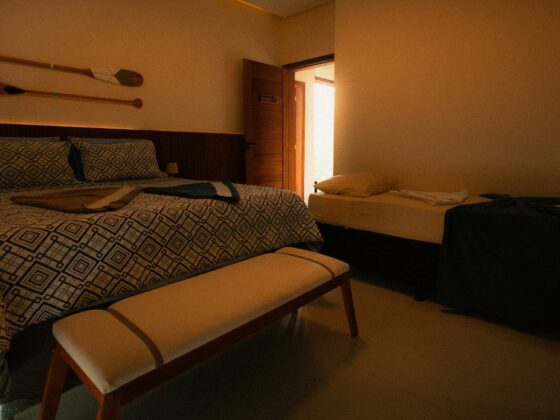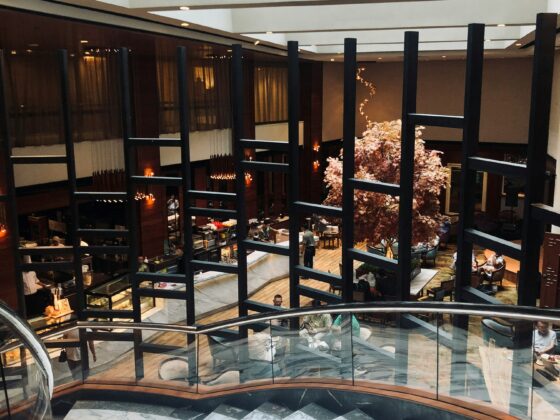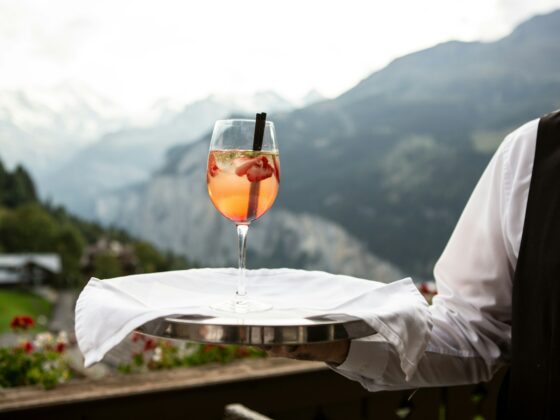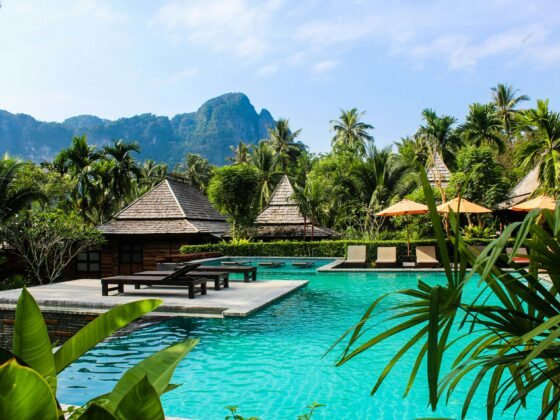Barry Sternlicht just issued a wake-up call at
NYU IHIF
: independent brands are coming for the big hotel chains. He’s right, but the playbook they’re using isn’t new. It’s the same one that built billion-dollar DTC empires.
Look at these vintage hotel ads. The strategy was mass appeal: be everything to everyone, everywhere. Marriott promised business travelers, families, and leisure guests the same standardized experience from Philly to St. Louis. Sheraton bragged about being in every major city. The message was “We are for everyone, everywhere.”
Sound familiar? It’s the same thinking that created the department store model, and we all know how that ended…
The DTC Revolution Hotels are Missing
Allbirds
didn’t try to make shoes for everyone. They made the perfect shoe for sustainability-conscious millennials who valued comfort over status.
Glossier, Inc.
didn’t compete with Sephora’s 10,000 SKUs. They created 20 perfect products for women who wanted effortless, Instagram-worthy beauty.
Brooklinen
didn’t try to furnish entire bedrooms. They obsessed over making the perfect sheets for design-conscious urbanites.
All three built massive businesses with ZERO physical footprint, becasue they understood something legacy brands didn’t: specificity creates loyalty.
What Hotels Can Learn from DTC Winners
Stop trying to be everything to everyone. The most successful DTC brands have a clear point of view and an equally clear “this isn’t for you” stance.
Obsess over your customer. Glossier didn’t care about baby boomers. Allbirds didn’t chase marathon runners. They went deep, not wide.
Build community, not just customers. DTC brands create movements. Their customers become evangelists because they feel seen and understood.
Start with brand, not buildings. The strongest DTC companies built massive followings before they had physical presence. They proved demand through story before scale.
My Vision for Hospitality’s DTC Future
The hotel brands that will win won’t be the ones with the most keys, they’ll be the ones with the clearest voice.
Imagine a hotel brand that’s unapologetically for:
- Remote workers who need productive, inspiring environments.
- Solo female travelers seeking safety and community.
- Wellness-obsessed guests who want recovery and rejuvenation.
- Creative professionals needing spaces that spark inspiration.
Instead of 47 amenities nobody uses, they’ll have 7 that their specific guests can’t live without. Instead of being in 200 cities, they’ll dominate 20 neighborhoods their customers actually want to be in.
As Barry noted, upstart brands are stealing market share “one social media post at a time” because they understand their customer so well that every post feels personal.
The Writing Is on the Wall
The future belongs to hospitality brands that operate like the best DTC companies: hyper-focused, community-driven, and unapologetically specific. The question isn’t whether this shift will happen, it’s when and whether established players will adapt or watch nimble startups eat their lunch, one perfectly targeted customer segment at a time?
Who’s ready to stop being everything to everyone and start being everything to someone?
As a founder in building in this space, I’m betting on specificity over scale. The brands that will thrive won’t chase every traveler, they’ll obsess over the right ones.
#Hospitality #DTC #HotelInnovation #ArtificialIntelligence #GuestExperience #FutureOfTravel #HotelTech #HotelMarketing #BrandStrategy #Commerce









